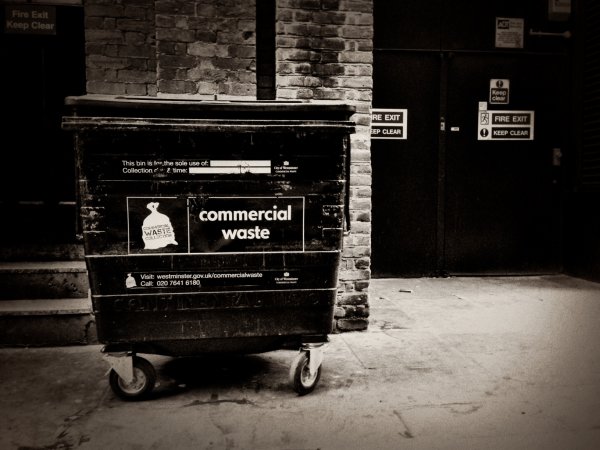
This is where your bad images belong!
The Most Powerful Keyboard Shortcut You Never Knew
So you’ve got some skills, can take a decent photo and know a bit about how to post process. The best thing you can do now is keep on shooting and make as many pictures as you possibly can? Probably, however just as beneficial as taking lots of images is the habit of deleting some as well. It might sound counter intuitive but pressing the delete key after a shoot is a great way to give your photography an all round boost.
Deleting is Good
One of the best things about digital photography is the ability to take lots of shots and experiment. Having the ability to take all these images is great however how what is even more useful is the ability to look back and critique your own work.
Soon after starting to shoot seriously I became very aware of my growing image collection, however it took me a long time to realize that most of this was just dead hard disk space. It’s a tough fact to accept but getting comfortable with getting rid of the dead wood can be beneficial in a number of ways. Here is how I go about reviewing and deleting my images and a few reasons why I do.
What I Do
Reviewing your own image library needn’t be a big deal, I keep it to three simple steps:
- Right after I import my images from the camera, I do a quick review and straight away delete any of the obvious rejects (blurry, wonky etc).
- Second step is to do all my post processing, again rejecting any obvious duds. This is a great stage to save time by discarding any images which need more processing than reasonable.
- Lastly (and most difficult), I review my completed images. This is where I make the difficult choices. I’m a big fan of scoring and I use the 5 star rating system in Lightroom (my preferred post processing software) as a means of making sure I only keep the very best images. Anything, which scores less than 3 out of 5, is a gonner!
Ultimately you will have to decide how best to go about this but as a rule of thumb I try my best to keep only those shots which feel like they work visually and delete any which could be considered to duplicates or similar to other images from the shoot.
Benefits:
Deleting your old images can be beneficial in a number of ways:
- It frees up hard disk space – Any image which once its taken is never viewed again, printed or posted is a waste of resources. Think of how many good images you could put in their place.
- It saves you time – Ever spent time trying to ‘rescue’ dud pictures in post? Save this time for the good images or failing that getting better at taking them in the first place.
- It tells you how good you are – Knowing how many you’ve deleted lets you know what your strike rate is and more importantly knowing why you’re deleting them tells you what you need to do to get better.
- It makes sure others know how good you are – If you can’t see your weaker shots then neither can anyone else, get rid of them and make your portfolio the best it can be.
Summary
It might be a tough thing at first, but using your delete key can be a great way to become a better, more efficient photographer. In the long run it will save you time, hard disk space and make your portfolio stronger. Treat deleting your images like the photographic version of natural selection, cull your weakest images and make sure only your strongest survive!
Post originally from: Digital Photography Tips.
Check out our more Photography Tips at Photography Tips for Beginners, Portrait Photography Tips and Wedding Photography Tips.
Deleting is Good for You!
You must be logged in to post a comment.